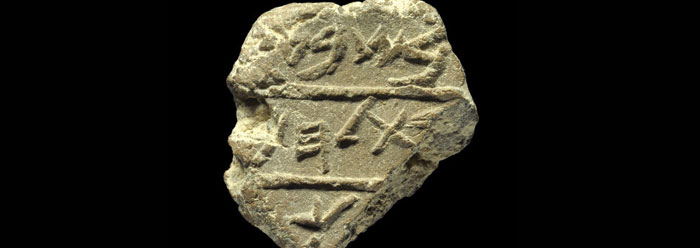First mentioned in Genesis, Bethlehem was the home of one of Israel's judges before the period of its kings even began. About 400 years before it was fulfilled in exact detail, the prophet Micah wrote, "But thou, Bethlehem Ephratah, though thou be little among the thousands of Judah, yet out of thee shall he come forth unto me that is to be ruler in Israel; whose goings forth have been from of old, from everlasting."3
He whose "goings forth have been from…everlasting" could only have been God, since all humans other than Jesus exist inside, not outside, of time. Even at Christ's birth in Bethlehem, some "experts" in God's Word showed their unwillingness to admit that the promised "ruler in Israel" was indeed Everlasting God because they omitted the last clause from Micah 5:2 when quoting it to king Herod.4
The situation is much the same today. In order to propagate disbelief in factually fulfilled prophecies—an attitude that follows disbelief in miracles, the supernatural, and the God of the Bible—scholars suggest that prophetic Scriptures were written after the fulfilled events occurred. But this ignores real history and ignores the problem of how any writer could possibly have convinced his contemporaries that something he had just written was actually ancient.
With this bulla bearing the name of Bethlehem, the historicity of this small and ancient city is firmly established by archaeology. Eli Shukron, director of the excavation of Jerusalem's ancient City of David, said in an Israel Ministry of Foreign Affairs press release, "this is the first time the name Bethlehem appears outside the Bible, in an inscription from the First Temple period, which proves that Bethlehem was indeed a city in the Kingdom of Judah, and possibly also in earlier periods."1
Bethlehem was truly the birthplace of the Lord Jesus. And given the great difficulty in choosing the place of one's birth, only the great "I am" could have precisely fulfilled the prophecy of His own birthplace. Those who would deny that Christ was born in Bethlehem, or that Bethlehem existed when Micah prophesied His birthplace, now need greater faith than those who acknowledge the historicity of Christ, Bethlehem, and Micah.
References
- Earliest evidence of Bethlehem in First Temple period. Israel Ministry of Foreign Affairs press release, May 23, 2012.
- The seal was dated to sometime during the reign of Hezekiah, Manasseh, or Josiah, who lived within 700-850 B.C. (See ref. 1).
- Micah 5:2.
- "And when he [Herod] had gathered all the chief priests and scribes of the people together, he demanded of them where Christ should be born. And they said unto him, In Bethlehem of Judaea: for thus it is written by the prophet, And thou Bethlehem, in the land of Juda, art not the least among the princes of Juda: for out of thee shall come a Governor, that shall rule my people Israel" (Matthew 2:4-6).
Image credit: Clara Amit Copyright © 2012 Israel Antiquities Authority. Adapted for use in accordance with federal copyright (fair use doctrine) law. Usage by ICR does not imply endorsement of copyright holders.
* Mr. Thomas is Science Writer at the Institute for Creation Research.
